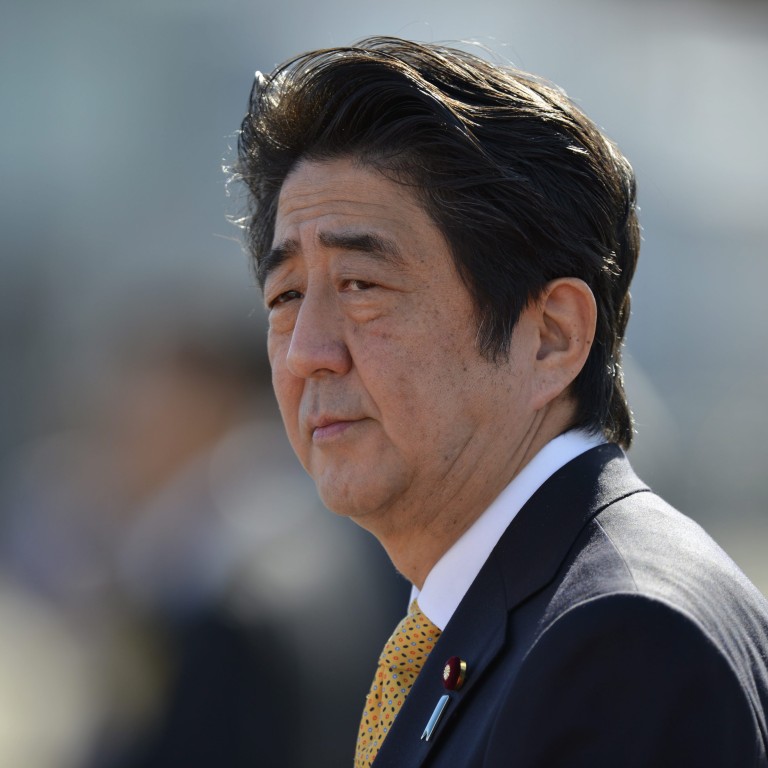
Update | Air defence identification zone tops Shinzo Abe-Joe Biden talks in Tokyo
Abe says he will seek to reach consensuson response to Beijing's assertiveness over East China Sea at meeting in Tokyo with Joe Biden
Japanese Prime Minister Shinzo Abe said yesterday he would discuss China's air defence identification zone with US Vice-President Joe Biden in Tokyo to co-ordinate their stance after apparently contradictory responses.
China raised regional tensions with its declaration last weekend of the zone, which covers islands in the East China Sea at the centre of a dispute between Beijing and Tokyo. Aircraft traversing the area are required to submit their flight plans.

"We want to hold consultation with US Vice-President Biden who will visit Japan this week and deal with the matter by co-ordinating closely between Japan and the United States," Abe said.
Biden is due to arrive in Tokyo late today for a 34-hour visit as part of a trip that will also take him to China and South Korea.

"We have confirmed it through diplomatic channels," Abe told reporters, according to Jiji Press news agency.
South Korea has told the country's airlines not to submit flight plans to China, the South's Yonhap news agency said yesterday, citing a government source.
Chinese analysts say the US government's request that its civilian airlines comply with Beijing's air defence zone was a sign of Washington's flexibility over the contentious area. Jiang Lifeng, a former director of the Institute of Japanese Studies at the Chinese Academy of Social Sciences, said the US was reluctant to show a united front with Japan "at the expense of doing the wrong thing".
"ADIZs have their own rules, and what the US has done is in line with global norms," Jiang said. "It's Japan who's being irrational and even thuggish. The US, being autonomous, would not do the wrong thing just to appear united with Japan."
It might also might be an apt prelude to Biden's visit.
"It would make Biden's life a bit easier next week when he's at the negotiating table with China," Jiang said.
Shi Yongming, a research fellow at the China Institute of International Studies, said the move showed the US was willing to show friendliness after making its point clearly by sending two B-52 bombers over the zone last week.
"The US made it clear what it was unhappy about, and its latest move was only in line with global norms with such air defence zones. Compared with Japan's order … you can say it's a display of friendliness," Shi said.
The State Department said on Friday its position on US carriers "does not indicate US government acceptance of China's requirements for operating in the newly declared ADIZ".
